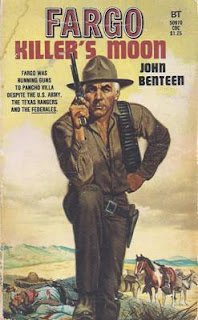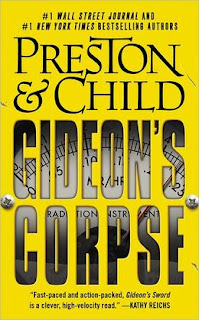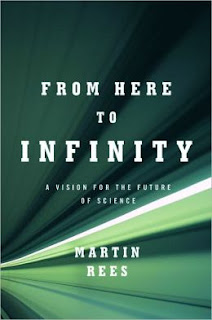Howard Jones’s debut historical fantasy novel,
The Desert of Souls (Thomas Dunne Books 2011), was widely acclaimed by influential publications like
Library Journal,
Kirkus, and
Publishers Weekly,

where it was labeled “a splendid flying-carpet ride.” It made
Kirkus’ New and Notable list for 2011, and was on both
Locus’s Recommended Reading List and the Barnes and Noble Best Fantasy Releases list of 2011. Additionally,
The Desert of Souls was a finalist for the prestigious Compton Crook Award, and a featured selection of The Science Fiction Book Club. Its sequel,
The Bones of the Old Ones, hits bookstores this week.
A couple of weeks ago I asked Jones what he was reading. His reply:
Because I’m writing in a version of the 8th century, albeit one where magic and dark horrors actually exist, I always have at least one book underway for research purposes. Right now I’m (re) reading the Shahnamah, or Persian Book of Kings, the epic poem written by  Abolqasem Ferdowsi in the early 9th century. The recent prose translation by Dick Davis is pretty captivating, and I just finished a section about the adventures of Sekander, or, as we know him, Alexander the Great. It was fascinating to see the Macedonian conqueror depicted as a mythological figure torn between his drive for adventure and his duties as a monarch. Soon I’m going to be re-visiting a long section about the hero Rustam, who is a little like Herakles, complete with a series of labors.
Abolqasem Ferdowsi in the early 9th century. The recent prose translation by Dick Davis is pretty captivating, and I just finished a section about the adventures of Sekander, or, as we know him, Alexander the Great. It was fascinating to see the Macedonian conqueror depicted as a mythological figure torn between his drive for adventure and his duties as a monarch. Soon I’m going to be re-visiting a long section about the hero Rustam, who is a little like Herakles, complete with a series of labors.
I began the Shahnamah some years ago so that I’d know some of the fables and legends my characters might have heard, but it wasn’t too long before the sheer imaginative scope and pathos captivated me. It’s a book I revisit and think about frequently.
 I’ve just finished Peadar Ó Guilín’s The Inferior. I’d heard good things about the book, and, having met Peadar and enjoyed his company at the 2012 Worldcon, decided to give it a go. In some ways The Inferior was a throwback to old adventure science fiction/fantasy of the kind Andre Norton used to write. Yet because of its modern pedigree it was able to take on topics older books could never have tackled. Don’t get me wrong – it’s primarily an adventure novel – but like the best speculative fiction, subtly turns a mirror on our own time, asking us to question conceptions about societal roles as it entertains.
I’ve just finished Peadar Ó Guilín’s The Inferior. I’d heard good things about the book, and, having met Peadar and enjoyed his company at the 2012 Worldcon, decided to give it a go. In some ways The Inferior was a throwback to old adventure science fiction/fantasy of the kind Andre Norton used to write. Yet because of its modern pedigree it was able to take on topics older books could never have tackled. Don’t get me wrong – it’s primarily an adventure novel – but like the best speculative fiction, subtly turns a mirror on our own time, asking us to question conceptions about societal roles as it entertains.
I’ve just finished Killer’s Moon, by Ben Haas writing as John Benteen. A few years back I would have turned up my nose at a western, let alone a 70s series western, but I’m actually getting a little wiser with age. Sure, the Haas Fargo novels have formulaic elements, but Haas was a master with pace and setting. I never fail to take a few mental notes about how Haas  works his magic. He knew how to evoke visceral details without slathering on the description, and how to deliver surprises even while writing formula. He also manages to portray the challenges of wilderness living, working with horses, and other details useful to someone wanting to write of an earlier time, west or east. To get to this good stuff, though, you have to look past the 70s sexism and a few other issues. It’s like eating a tasty hamburger made by an excellent cook who insists on using a pickle you don’t like. In the case of Haas I love the rest of the food so well I usually just eat the pickle, even if I normally prefer salmon…
works his magic. He knew how to evoke visceral details without slathering on the description, and how to deliver surprises even while writing formula. He also manages to portray the challenges of wilderness living, working with horses, and other details useful to someone wanting to write of an earlier time, west or east. To get to this good stuff, though, you have to look past the 70s sexism and a few other issues. It’s like eating a tasty hamburger made by an excellent cook who insists on using a pickle you don’t like. In the case of Haas I love the rest of the food so well I usually just eat the pickle, even if I normally prefer salmon…
Despite this long preamble, this was my least favorite Fargo title yet. Some sections felt a little perfunctory. Another great strength of these old westerns, though, is that none are  longer than 60 thousand words , so they’re quick reads. I wish short books like that were still in vogue.
longer than 60 thousand words , so they’re quick reads. I wish short books like that were still in vogue.
I’ve just started The Religion, by Tim Willocks, a novel that’s been sitting on my “to be read” pile for several years. It’s devoted to the Turkish Siege of Malta although I haven’t gotten to that part yet. I’ve heard great things about it from sources I usually rely upon, and so far the opening sections are vivid and striking, if harrowing. I’m eager to see what happens next.
Visit
Howard Andrew Jones's website.
--Marshal Zeringue
 Lisa O'Donnell won the Orange Screenwriting Prize in 2000 for The Wedding Gift and, in the same year, was nominated for the Dennis Potter New Screenwriters Award. Her new book, The Death of Bees, is her first novel. A native of Scotland, O'Donnell is now a full-time writer and lives in Los Angeles with her two children.
Lisa O'Donnell won the Orange Screenwriting Prize in 2000 for The Wedding Gift and, in the same year, was nominated for the Dennis Potter New Screenwriters Award. Her new book, The Death of Bees, is her first novel. A native of Scotland, O'Donnell is now a full-time writer and lives in Los Angeles with her two children.I’m also reading The Good Women of China - Hidden Voices by Xinran. An unforgettable story written by a journalist documenting heroic, often times tragic stories of women living in China, past and present. These are shared tales from the bravest and strongest of women documented by an extraordinary journalist who risks her freedom in the minefield of restrictions imposed on journalists in China in order to reach women across the world.
a happy hour reading to my enthralled children her tales of witches and giants. I am also huge fan of Michael Morpurgo who wrote Kensuka’s Kingdom. It is an incredible book. My son loves it. He’s a little older and embracing Dahl right now. Writing for children isn’t easy and not anything I intend to pursue, but I so admire those authors who can.




















































